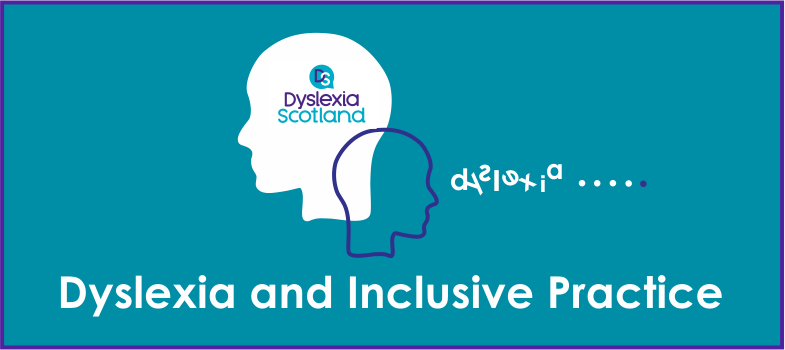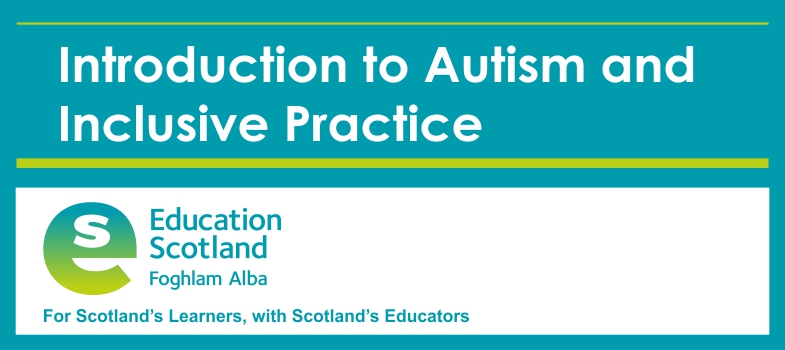This OpenLearn collection brings together a range of free resources designed to educate, inspire, and support neurodivergent learners, allies, educators, and employers.
-
Understanding autism
Learn more to access more details of Understanding autismLearn about autism, one of the most challenging long-term conditions of the century. This free course, Understanding autism, introduces the autism spectrum, how it is experienced by individuals and families, and why it has become a global concern. The course explains how understanding of the autism spectrum and approaches to diagnosis and care ...

-
Understanding ADHD
Learn more to access more details of Understanding ADHDThis course explores the experience of ADHD from the perspective of those who are diagnosed with the condition, and those who care for them. It covers the contribution of scientific research to understanding ADHD, with a focus on assessing the effectiveness and mechanism of action of treatments and therapies.

-
Understanding dyslexia
Learn more to access more details of Understanding dyslexiaDyslexia is a neurodivergent condition affecting over 10% of the population. It is often linked to reading and writing challenges, but also gives rise to strengths like creativity and problem-solving. Each individual experiences dyslexia differently. Despite its prevalence, it remains under-recognised globally. With proper understanding and ...

-
Beyond the plate: Autism, food and sensory sensitivities
Read now to access more details of Beyond the plate: Autism, food and sensory sensitivitiesSome autistic people may be called ‘fussy’ when it comes to eating certain foods, but is there more to it? This article explores the relationship between autism and Avoidant and Restrictive Food Intake Disorder (ARFID).

-
Why an autistic meltdown or shutdown is not a ‘tantrum’
Read now to access more details of Why an autistic meltdown or shutdown is not a ‘tantrum’What is the difference between a meltdown and a shutdown, and why do autistic people react in this way when they are distressed and overwhelmed?

-
Neurodivergence and birth trauma
Read now to access more details of Neurodivergence and birth traumaWhat are the connections between brain-altering experiences and neurodivergent conditions? This article looks at the links to traumatic birth.

-
Neurodiversity: What is it and what does it look like across races?
Read now to access more details of Neurodiversity: What is it and what does it look like across races?How does a person’s ethnicity and the perspectives of different cultures affect the identification of neurological difference? Mel Green explores in this article on neurodiversity.

-
What do you really know about autism?
Take part now to access more details of What do you really know about autism?You've probably heard a lot about autism - but can you separate the myth from the reality? Try this interactive quiz to test your knowledge.

-
From ‘refrigerator mothers’ to paracetamol: why harmful autism myths are so common
Read now to access more details of From ‘refrigerator mothers’ to paracetamol: why harmful autism myths are so commonDecades of research show that autism isn’t caused by parenting choices - yet myths that blame mothers continue to resurface. Donald Trump’s recent comments about paracetamol and pregnancy are just the latest example.

-
SEND crisis: overdiagnosis - fact or fiction?
Read now to access more details of SEND crisis: overdiagnosis - fact or fiction?On average three pupils in every classroom will be dyslexic, yet only 20% of these pupils will be diagnosed. Kim Collett looks at whether there's an overdiagnosis or underdiagnosis in relation to Special Educational Needs and Disabilities (SEND).

-
5 tried-and-tested study tips for dyslexic students
Read now to access more details of 5 tried-and-tested study tips for dyslexic studentsStudying with dyslexia can sometimes feel overwhelming – but the fact you’ve made it this far shows you have what it takes to succeed. From planning ahead to harnessing your creativity, here are five practical strategies to make studying more effective, less stressful, and more suited to the way you work best.

-
ADHD and Dyslexia: How and why formal diagnosis can be helpful
Take part now to access more details of ADHD and Dyslexia: How and why formal diagnosis can be helpfulExplore the experiences behind ADHD and dyslexia diagnoses in this interactive feature.

-
Why asking what causes autism is the wrong question
Read now to access more details of Why asking what causes autism is the wrong questionWhen PETA cited small studies to suggest cow’s milk could be linked to autism, it reignited familiar debate around the condition’s causes. But such reporting, like more recent vaccine scares, risks framing autism as a problem to be prevented rather than a difference to be understood and valued.

-
Is there such thing as ‘male’ and ‘female’ autism?
Read now to access more details of Is there such thing as ‘male’ and ‘female’ autism?There can be differences in how autistic males and females present; this has led to suggestions that there is ‘male autism’ and ‘female autism’. Dr Emilia Misheva argues that those differences are better understood in the context of the externalised and internalised expressions of autism.

-
Dealing with feedback when you are neurodivergent
Read now to access more details of Dealing with feedback when you are neurodivergentWhy is receiving feedback different when you’re neurodivergent and how can you get better at dealing with it?

-
Struggling in silence: Why we need to talk about autistic people’s experiences of menstruation
Read now to access more details of Struggling in silence: Why we need to talk about autistic people’s experiences of menstruationPeriods can affect most of the senses and the heightened hormonal changes can be particularly distressing for autistic people. This article considers the importance of their experiences of menstruation.

-
Preparing tutorials for dyslexic language students
Read now to access more details of Preparing tutorials for dyslexic language studentsStrategies language teachers can follow before their tutorials to help dyslexic students

-
Introduction to Autism and Inclusive Practice
Learn more to access more details of Introduction to Autism and Inclusive PracticeThis introductory module aims to support you to develop an awareness of what autism is, its impact and how it can be supported within an inclusive school community. It may also be of interest if you work in the voluntary sector or simply have an interest in autism and inclusive practice.
-
Non-speaking autism, embodiment, neurodivergence and access to communication therapies and devices
Read now to access more details of Non-speaking autism, embodiment, neurodivergence and access to communication therapies and devicesRuth Collier-Large discusses her research project, which aims to give a platform to non-speaking autistic people, who may communicate independently online.

-
How to support neurodivergent mothers during pregnancy and birth
Read now to access more details of How to support neurodivergent mothers during pregnancy and birthHow can midwives and practitioners create a more positive and supportive birthing experience for neurodivergent mothers?

-
The physical impacts of ADHD
Read now to access more details of The physical impacts of ADHDADHD affects more than focus – it can impact the body too. From unexplained bruises to chronic fatigue, these physical effects highlight why school and workplace accommodations should support overall wellbeing, not just productivity.

-
Dyscalculia, maths anxiety and numerophobia in nursing practice
Read now to access more details of Dyscalculia, maths anxiety and numerophobia in nursing practiceStudents, Nursing Associates and registered nurses can experience dyscalculia, maths anxiety and numerophobia, but they can be reassured that effective support is available.
-
Support for dyslexic language students through feedback
Read now to access more details of Support for dyslexic language students through feedbackA summary of how you can help dyslexic students through providing feedback

-
Neurodivergence and the menopause: a personal journey
Read now to access more details of Neurodivergence and the menopause: a personal journeyMenopause can intensify cognitive struggles, sensory overwhelm and self-doubt, especially for those with neurodivergent traits. This personal account explores the challenges of balancing career, health and self-advocacy while seeking the right medical and lifestyle support.

-
The benefits of an accountability partner for neurodivergent people
Watch now to access more details of The benefits of an accountability partner for neurodivergent peopleStaying motivated while studying can be incredibly difficult, especially if you’re neurodivergent. This animation explains how a virtual accountability partner can help with distance learning.

-
Diversity and inclusion in the workplace
Learn more to access more details of Diversity and inclusion in the workplaceDo you feel concerned about a lack of diversity in your workplace? Is this something you want to address? Perhaps you’d like to feel more informed on a personal level before taking it further organisationally? This free course introduces you to the benefits and complexities of developing and supporting a diverse and inclusive workforce. It ...

-
Introduction to Dyslexia and Inclusive Practice
Learn more to access more details of Introduction to Dyslexia and Inclusive PracticeThis free module aims to provide teachers and local authority staff with an awareness of what dyslexia is, its impact and how it can be supported within an inclusive school community. It may also be of interest if you work in the voluntary sector or simply have an interest in dyslexia and inclusive practice.

-
Coaching neurodivergent athletes
Learn more to access more details of Coaching neurodivergent athletesThis course is designed to improve the knowledge and understanding for anyone working with neurodivergent athletes in sport and exercise settings or with an interest in coaching neurodiverse athletes. Within the sport and exercise sector this may include those in coaching roles, as well as fitness instructors, personal trainers and wider ...




Rate and Review
Rate this article
Review this article
Log into OpenLearn to leave reviews and join in the conversation.
Article reviews